STAT 164 - Probability Distributions SUMMARY CHAPTER 2
1/69
There's no tags or description
Looks like no tags are added yet.
Name | Mastery | Learn | Test | Matching | Spaced |
|---|
No study sessions yet.
70 Terms
BERNOULLI
BINOMIAL
GEOMETRIC
NEGATIVE BINOMIAL
HYPERGEOMETRIC
POISSON
MULTINOMIAL
What are the types of DISCRETE DISTRIBUTIONS?
BERNOULLI
RANDOM EXPERIMENT
One trial with only two outcomes: success or failure
BERNOULLI
RANDOM EXPERIMENT
The probability of success is equal to p and the probability of failure is 1 - p
BERNOULLI
RANDOM VARIABLE (X)
Defined as 1 if a trial results in success and 0 if the same trial results in failure

PROBABILITY FUNCTION
BERNOULLI
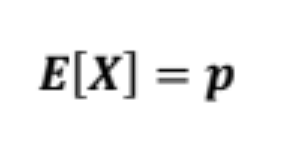
MEAN
BERNOULLI

VARIANCE
BERNOULLI
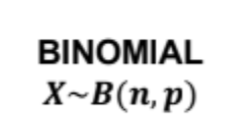
DISTRIBUTION
BINOMIAL
BINOMIAL
RANDOM EXPERIMENT
The n identical Bernoulli trials are conducted independently, that is, the outcome of any one trial does not depend on the outcome of the other trial.
BINOMIAL
GEOMETRIC
RANDOM EXPERIMENT
The probability of success does not change from trial to trial
BINOMIAL
RANDOM EXPERIMENT
Sampling is with replacement
BINOMIAL
RANDOM VARIABLE (X)
Number of success/failures in n trials
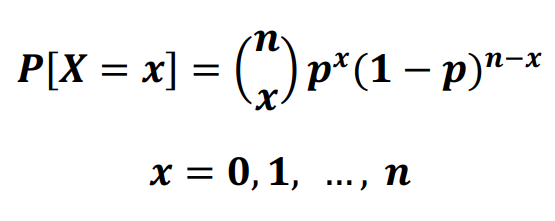
PROBABILITY FUNCTION
BINOMIAL

MEAN
BINOMIAL

VARIANCE
BINOMIAL
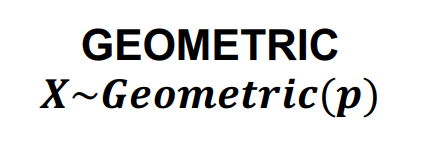
DISTRIBUTION
GEOMETRIC
GEOMETRIC
HYPERGEOMETRIC
RANDOM EXPERIMENT
Each trial has two possible outcomes: success or failure
GEOMETRIC
RANDOM EXPERIMENT
The trials are independent.
GEOMETRIC
RANDOM VARIABLE (X)
Number of trials to get the first success
Number of trials BEFORE observing the first success

PROBABILITY FUNCTION, MEAN, and VARIANCE
given x = 1, 2, …….
GEOMETRIC

PROBABILITY FUNCTION, MEAN, and VARIANCE
given x = 0, 1, 2, …….
GEOMETRIC

DISTRIBUTION
NEGATIVE BINOMIAL
NEGATIVE BINOMIAL
RANDOM EXPERIMENT
A generalization of the geometric distribution
NEGATIVE BINOMIAL
RANDOM VARIABLE (X)
Number of trials to get r successes

PROBABILITY FUNCTION
NEGATIVE BINOMIAL

MEAN
NEGATIVE BINOMIAL
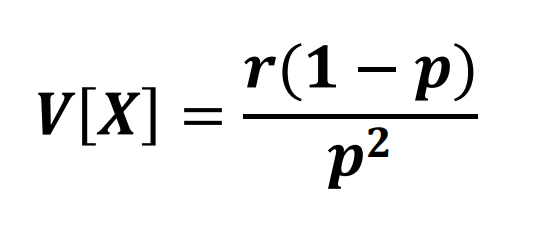
VARIANCE
NEGATIVE BINOMIAL

DISTRIBUTION
HYPERGEOMETRIC
HYPERGEOMETRIC
RANDOM EXPERIMENT
Sampling is without replacement
HYPERGEOMETRIC
RANDOM VARIABLE (X)
Number of success/failures in n draws
OR
Number of success/failures in a sample of size n
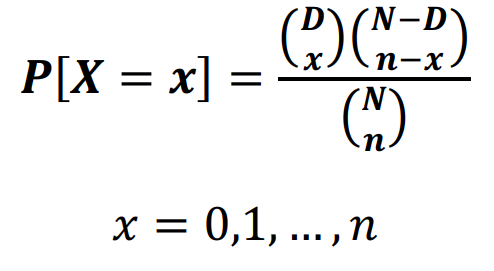
where N is the total number of objects, D is the number of success from N, and n is the number of objects drawn without replacement.
PROBABILITY FUNCTION
HYPERGEOMETRIC
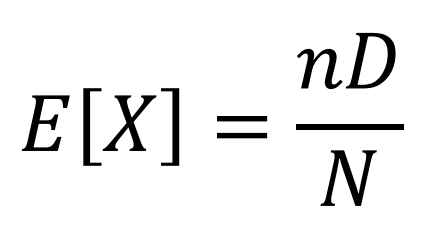
MEAN
HYPERGEOMETRIC

VARIANCE
HYPERGEOMETRIC
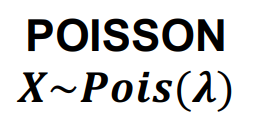
DISTRIBUTION
POISSON
POISSON
RANDOM EXPERIMENT
outcomes are discrete
POISSON
RANDOM EXPERIMENT
the number of successes, k, in any interval is independent of the number of successes in any other interval
POISSON
RANDOM EXPERIMENT
the chance of success is extremely small
POISSON
RANDOM VARIABLE (X)
Number of success/failure/events in a unit of time or space or interval
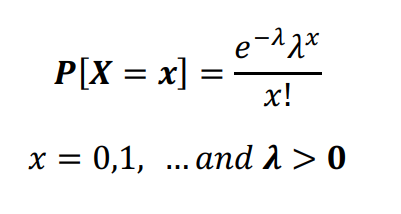
PROBABILITY FUNCTION
POISSON

MEAN
POISSON

VARIANCE
POISSON
MULTINOMIAL
RANDOM EXPERIMENT
an event with k different outcomes, each of which is observed ni times in N trials
MULTINOMIAL
RANDOM VARIABLE (X)
(one random variable per outcome) e.g. 1st outcome X1= number of 1st outcome in n trials

PROBABILITY FUNCTION
MULTINOMIAL
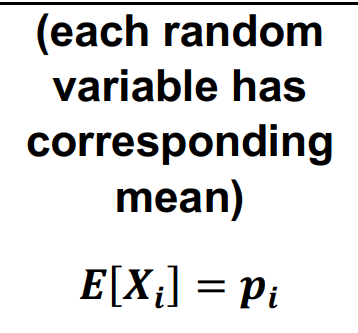
MEAN
MULTINOMIAL
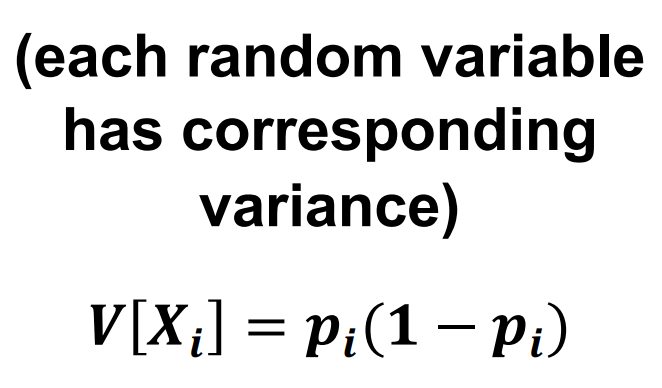
VARIANCE
MULTINOMIAL
NORMAL
STANDARD NORMAL
EXPONENTIAL
What are the types of CONTINUOUS DISTRIBUTIONS?
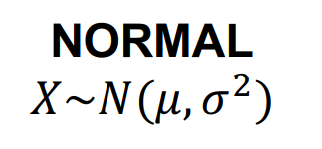
DISTRIBUTION
NORMAL
NORMAL
Its curve is bell-shaped and unimodal
NORMAL
Mean = Median = Mode
NORMAL
Symmetric about the mean
NORMAL
50% of the values are less than the mean and 50% are greater than the mean
NORMAL
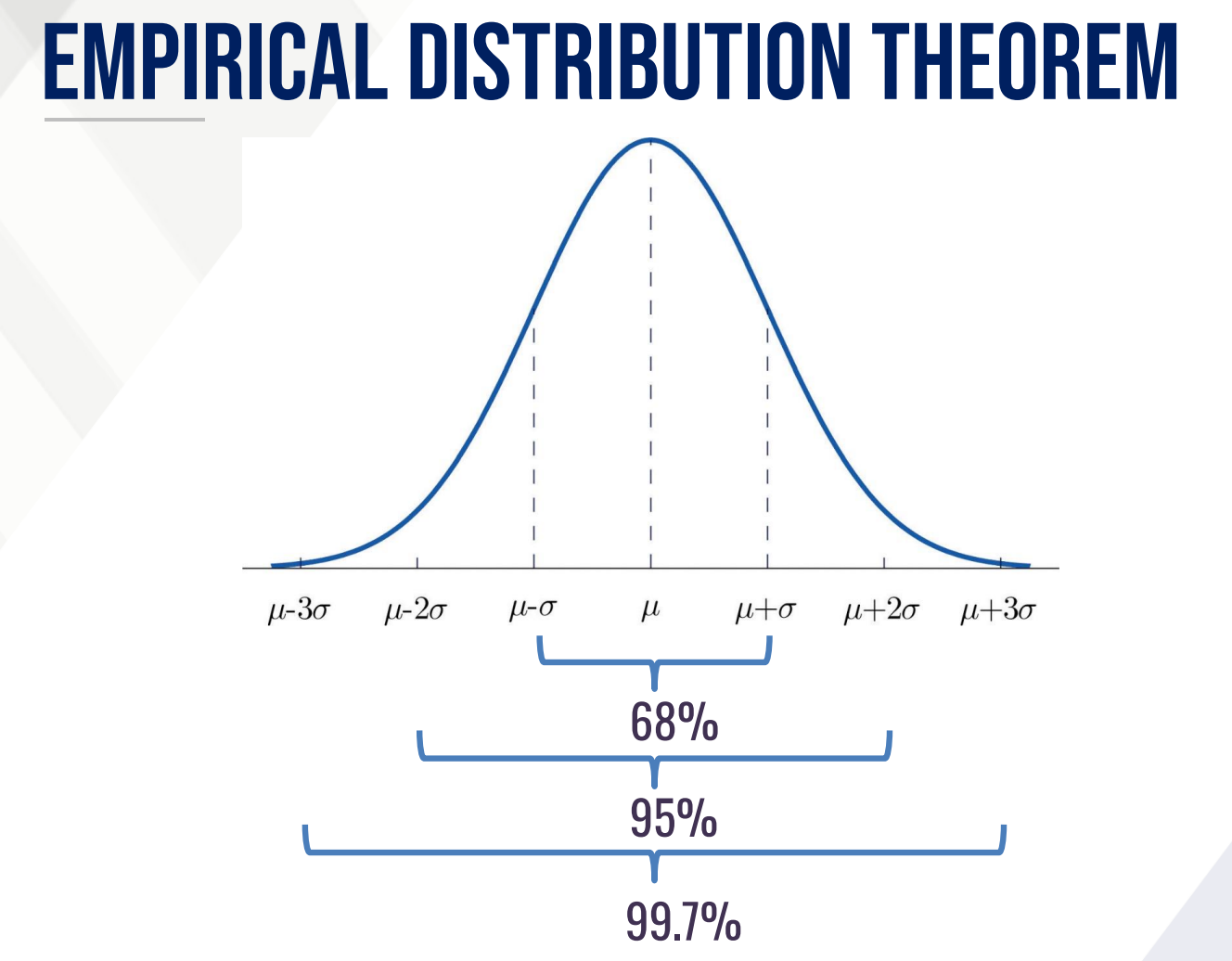
Empirical Distribution Theorem
Approximately 68% of the data falls within one standard deviation from the mean
Approximately 95% of the data falls within two standard deviation from the mean
Approximately 99.7% of the data falls within three standard deviation from the mean
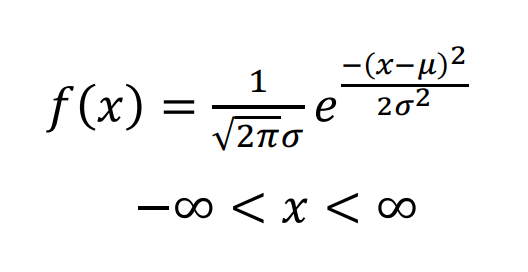
PROBABILITY FUNCTION
NORMAL

MEAN
NORMAL

VARIANCE
NORMAL

DISTRIBUTION
STANDARD NORMAL
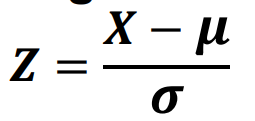

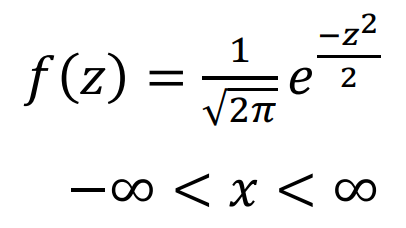
PROBABILITY FUNCTION
STANDARD NORMAL

MEAN
STANDARD NORMAL

VARIANCE
STANDARD NORMAL

λ = 1/λ
DISTRIBUTION
EXPONENTIAL
EXPONENTIAL
The continuous counterpart of the geometric distribution
EXPONENTIAL
The only parameter is the failure rate, λ which is constant
EXPONENTIAL
Appropriate for modelling life length data, survival time, or time between Poisson events
EXPONENTIAL
The probability decreases over time at a constant rate
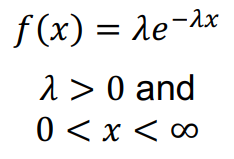
PROBABILITY FUNCTION
EXPONENTIAL
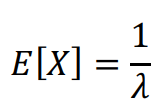
MEAN
EXPONENTIAL
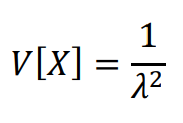
VARIANCE
EXPONENTIAL

The cumulative distribution function of an EXPONENTIAL distribution is given by: